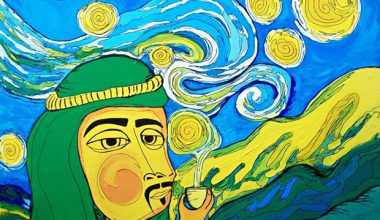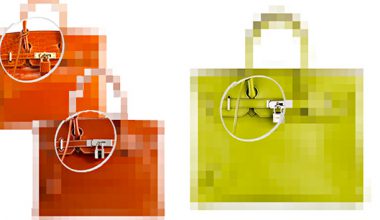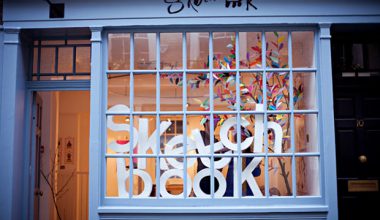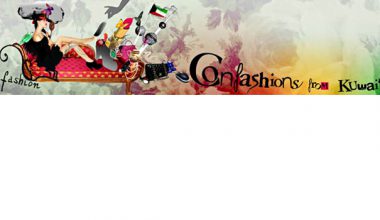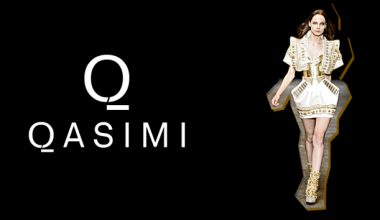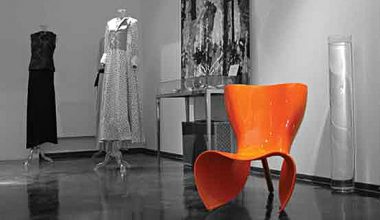Etaf Almutawa won’t let the pressures of her patriarchal society stop her from making music, in fact it motivates her even more. A young and upcoming self-taught artist, her music doesn’t conform to any genre – instead it is more in the form of storytelling. Singing in both Arabic and English, Etaf is all about experimenting and pushing boundaries. Her music is about tough topics that are of significance to her.
We talked to Etaf about her journey into music, the songs she writes and what she has planned.
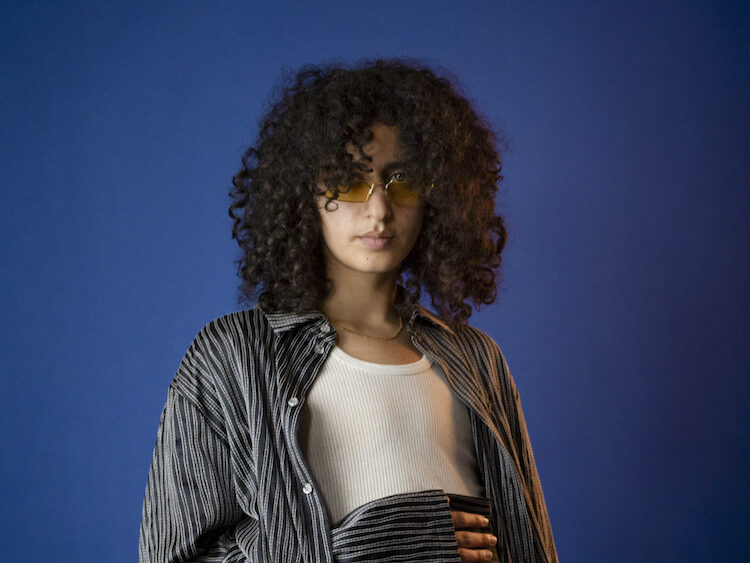
Saira Malik (S.M.): Can you start by telling us a little about yourself including your heritage and where you grew up?
Etaf Almutawa (E.A.): I’m a singer-songwriter and a multi-instrumentalist currently based in London. I’m Kuwaiti with Palestinian and Lebanese roots. My name is Palestinian, my family named me after my grandmother (3e6af) from Gaza. Etaf means deviation. My name is an accurate representation of myself. I deviate from social boundaries and norms to create my own path in life.
(S.M.): When did you begin your musical career and how did you overcome the obstacles you faced both at home and outside?
(E.A.): I grew up singing for family and friends. However, by the age of 16, I started teaching myself the guitar, and then oud, then many more instruments. I only began my music career professionally a year ago, the same time I finished my doctorate in law. I think there’s always going to be obstacles in life in whatever we decide to choose for ourselves or choose to be. But I think being an Arab female, especially in music, comes with a lot of challenges. You know, it’s the 3eib, the 7aram, ‘inti bint’, shame. These are all patriarchal concepts that oppress us as females under the patriarchal system. I have been, and continue to be, impacted by them.
(S.M.): Were you trained professionally as a musician and what has your musical journey been so far in terms of your support structure?
(E.A.): I was not trained professionally. I do music with my ears and heart, but I gain a lot of knowledge through collaborations with other artists. As I continue to work in the music industry in London though, I have learnt that there is more to the music industry than just music itself. The power of community is real. The people that I have that support, love, respect and enjoy me and my music is what keeps me going.
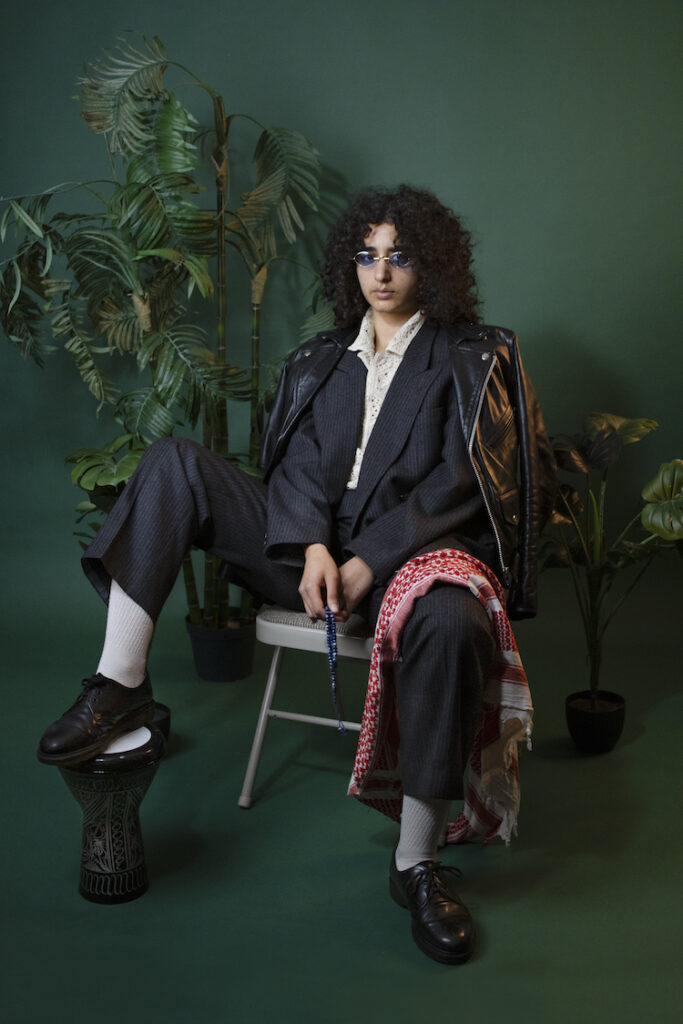
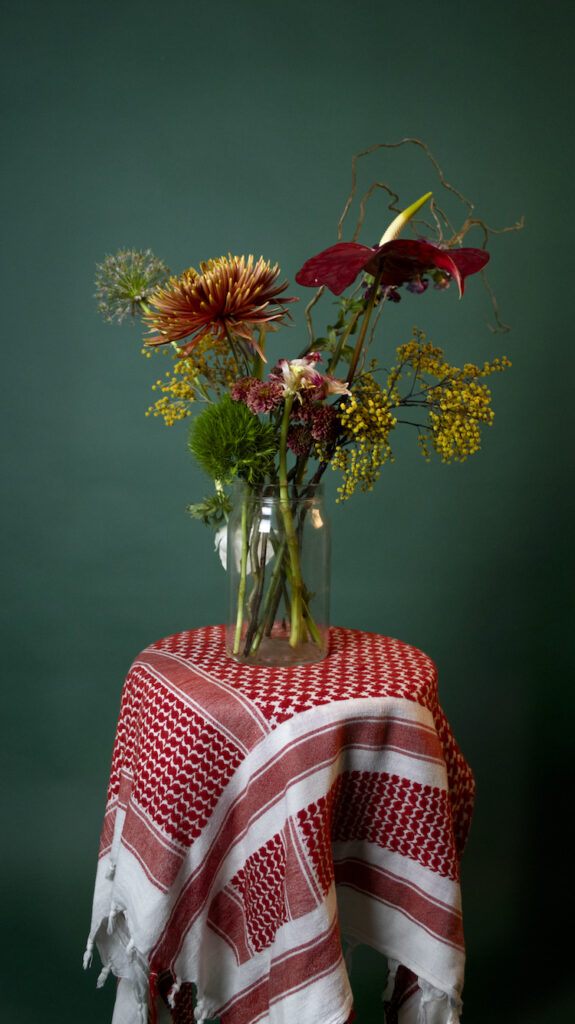
(S.M.): Who are some of the artists that have been your musical influences?
(E.A.): It’s hard to tell. Different artists influence me in different ways. I always like to know the artist’s story behind their music, and learn more about the artist’s identity and politics. When I listen to an artist with that knowledge of them, then I feel that I listen to all of them, rather than just their music. I can be intense like that, it’s probably my Scorpio moon. I think that’s where and how I get influenced and inspired, and it’s a very conscious and intentional approach.
(S.M.): What is it about the oud that you are most drawn to versus any other instrument?
(E.A.): Playing or composing on the oud is like having a ‘maqlouba’ or ‘maftool’ in a cold winter in London. It warms my heart and comforts me because it feels like home to me. I like feeling like home, it feels safe, especially during this time where my Palestinian heart is so broken.
(S.M.): What is the theme of your music and where do you draw your inspiration from?
(E.A.): My music is a combination of genres, but I am not ready to label my music yet. I know that I make something alternative, unique and controversial. My music can be sassy, sexy, playful and sarcastic but also can be sad and raw, and can be dark. I sing from pain and trauma. For example, my next single “Youmi” is about mental health and depression. The music is a combination of sad vocal, piano and now my producer is suggesting drum and bass beats, which I’m into. The structure of the song is neither Western nor Arabic; just a new storytelling way of singing. My music is like me, people either hate me or love me, nothing in between; that’s definitely my Aquarius sun.
(S.M.): How has living in London affected your musical style and do you not worry about the language barrier?
(E.A.): I have dreams in English now. I never thought I would; I feel like it’s every diaspora’s nightmare to dream in English because we’re actually so attached to our Arab identity, in ways that our families back home can’t see or understand. I sing and write in Arabic and English. Sometimes just English or just Arabic, but I also have songs that combine both languages. It’s a very common style of music amongst Arabic diasporas.
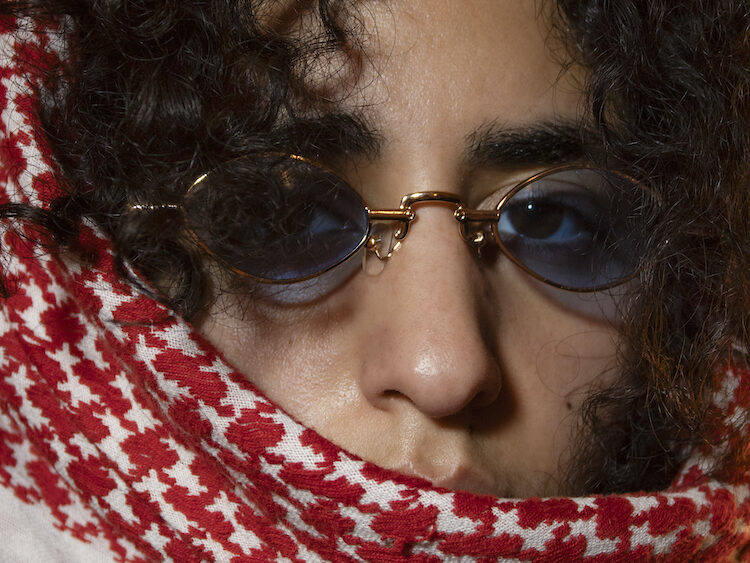
(S.M.): Can you talk to us about your first single, 7a2 and the message behind it?
(E.A.): 7a2 saved me from a big mental breakdown after losing my sister, who was a singer as well. She believed in me and enjoyed me singing Tamer Hosny for her. After her death I needed purpose or meaning in life again, so I started working on 7a2 because it is about finding life through love. I released it as a first single, with the intention that it will be the beginning of a journey that will make my sister very proud.
(S.M.): How would you describe your upcoming EP, Feemale that is set to release this year?
(E.A.): Fee-male, from the name, you can see, being a female comes with a price under the oppressive systems. The EP has three songs, and it’s my debut EP. Feemale is a story of longing for unconditional love whilst fighting for freedom and liberation as an Arab, Kuwaiti-Palestinian female. I will be performing the EP for the first time at Awan’s festival in London this March, and I look forward to seeing what the audience’s reaction will be. The release date has not been set yet, but hopefully it will be in early June.
(S.M.): What is your goal for your musical career?
(E.A.): I have intentions. Wherever I reach in my music, and whatever I achieve, I will always make sure that I continue to be my authentic self. I am curious to see where my creativity and these intentions take me.
Follow Etaf: www.instagram.com/thisisetaf
Photographer: Asma Hamdi @hamdi.asma_
Stylist: Drew Demetry @drew.demetry
Creative direction Nafs space @nafs.space


